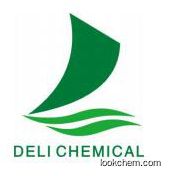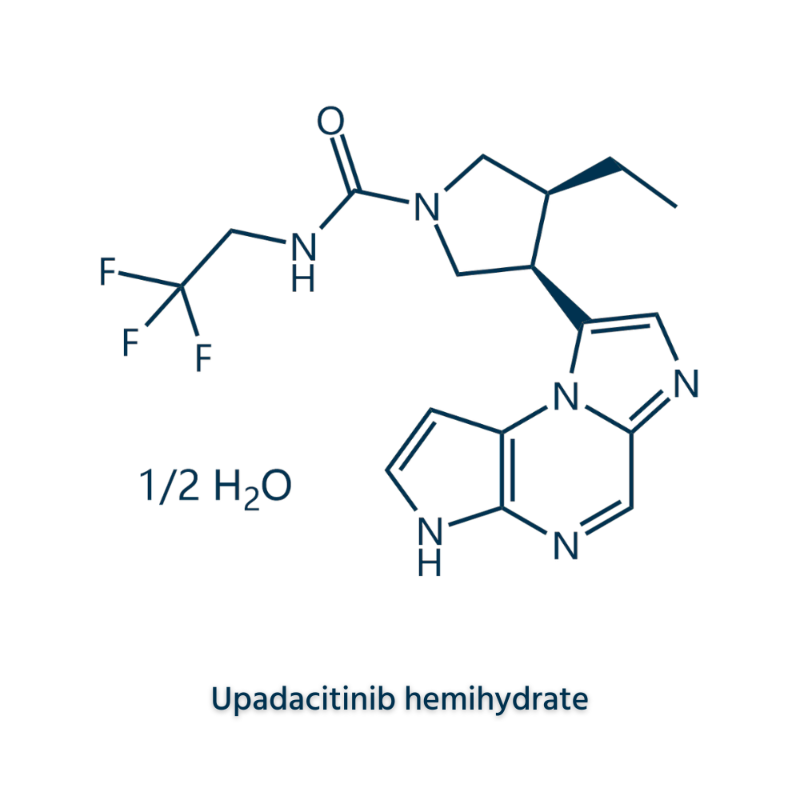-
Categories
-
Pharmaceutical Intermediates
-
Active Pharmaceutical Ingredients
-
Food Additives
- Industrial Coatings
- Agrochemicals
- Dyes and Pigments
- Surfactant
- Flavors and Fragrances
- Chemical Reagents
- Catalyst and Auxiliary
- Natural Products
- Inorganic Chemistry
-
Organic Chemistry
-
Biochemical Engineering
- Analytical Chemistry
-
Cosmetic Ingredient
- Water Treatment Chemical
-
Pharmaceutical Intermediates
Promotion
ECHEMI Mall
Wholesale
Weekly Price
Exhibition
News
-
Trade Service
The 2022 AACR has ended.
As a novel cytokine, TSLP is commonly expressed in epithelial cells on the surface of lung, skin, and intestinal barriers
For the first time, TSLP has been shown to be involved in initiating the inflammatory cascade leading to the development of asthma and other allergic diseases
Globally, AstraZeneca/Amgen's Tezepelumab, a giant company with the most advanced TSLP monoclonal antibody drug development progress, was approved for marketing in the United States on December 17, 2021, and Phase 3 clinical studies have been launched in China
Widely Severe Asthma
At present, domestic companies, Connoya, Hebo/Kelun Kangtai, and Quanxin Bio have successively submitted applications, and Connoya CM326 has now entered the clinical trial stage
About TSLP
About TSLPThymic stromal lymphopoietin (TSLP) is a cytokine family protein
Signal Path Schematic
TSLP receptor family member gene and expression
TSLP receptor family member gene and expressionThe TSLP receptor (TSLPR) is a member of the hematopoietic factor receptor family and is a type I cytokine receptor protein
Studies have found that glucocorticoids can reduce the expression of TSLP and TSLPR in asthmatic mice, change the function of DCs induced by TSLP, and shift the antigen-induced Th2 response to the Th1 response, reduce IL-4, TL-5, and IL-13, and produce IL.
Data from studies in asthmatic patients showed that the severity of asthmatic airway inflammation was positively correlated with the expression level of TSLP
TSLP-TSLPR and downstream signaling molecules play an important role in the occurrence and development of allergic diseases such as allergic asthma
The mechanism of action of TSLP may have the following aspects
The mechanism of action of TSLP may have the following aspects1.
2.
3.
On December 17, 2021, AstraZeneca and Amgen announced that the U.
Tezepelumab (AMG 157/MEDI9929) is a human IgG2 monoclonal antibody developed by Amgen and AstraZeneca.
Tezepelumab
CSJ117, developed by Novartis, is a human neutralizing antibody fragment that is expected to treat asthma, targeting TSLP mAb, a cytokine involved in asthma-related airway inflammation
CM326, developed by Chengdu Connoya, targets TSLP and is the first domestically targeted drug to enter the clinical research stage
The first in China At present, CM326 has been approved for clinical trials for asthma and moderate to severe atopic dermatitis indications, as well as chronic sinusitis with nasal polyps
.
Source: Connoya's product pipeline
On November 22, 2021, Connoya and CSPC jointly announced the exclusive development and commercialization of Connoya's anti-TSLP recombinant humanized monoclonal antibody CM326 in moderate to severe asthma and chronic obstructive pulmonary disease (COPD) and other respiratory diseases Formally sign the agreement
.
According to the agreement, Connoya will grant an exclusive license to CSPC CM326 to develop and commercialize the product in this field in China (excluding Hong Kong, Macau and Taiwan), and become the holder of the marketing license
.
Connoya will receive an upfront payment of RMB 100 million from CSPC and development milestone payments of up to RMB 100 million based on development progress
.
In the future, Connoya will receive sales milestone payments and sales commissions based on sales of the product in the region
.
On December 14, 2021, HBM9378 (SKB378) injection was declared in China by Harbin Pharmaceutical/Kelun Biotech.
Clinical trial application
.
HBM9378/SKB378 is a fully human monoclonal antibody produced on a double chain double light chain (H2L2) platform
.
The antibody targets TSLP and inhibits TSLP-mediated signaling by blocking the interaction between the factor and the receptor
.
TSLP plays an important role in DC cell maturation, participation in Th2 cell polarization and inflammatory response, especially in asthma caused by allergic airway inflammation
.
Source: Hebo Pharmaceutical's product pipeline
On March 14, 2022, Quanxin Bio applied for QX008N, which is also the third TSLP monoclonal antibody in China to submit a clinical application for the treatment of asthma
.
From asthma to other diseases research
From asthma to other diseases researchThe above-mentioned drugs under research are mostly indicated for asthma .
Connoya's CM326 is currently conducting research on atopic dermatitis and chronic obstructive pulmonary disease ;
At the 2022 AACR meeting, Hossam Alkashgari reported that his team found in preliminary experimental results that high levels of TSLP eliminated leukemia cells in a patient-derived xenograft (PDX) model of CRLF2 B-ALL
.
.
B-cell acute lymphoblastic leukemia (B-ALL) is the most common type of leukemia in children
.
B-ALL characterized by cytokine receptor-like factor 2 (CRLF2) overexpression (CRLF2 B-ALL) has a survival rate of <30% and is the subgroup at highest risk for B-ALL in adults and children
.
CRLF2 is the receptor component of TSLP
.
TSLP plays a role in the survival and proliferation of B-cell precursors, thereby explaining the oncogenic role of increased CRLF2 signaling in CRLF2 B-ALL
.
CRLF2 and IL-7Ra form a heterodimeric type I cytokine receptor for TSLP cytokines
.
Binding of TSLP to its CRLF2 receptor complex induces JAK-STAT5 and PI3K-AKT pathway signaling
.
TSLP shares IL-7Ra with IL-7
.
High levels of IL-7 (50 ng/ml) have been shown to induce IL-7Ra internalization and degradation in T cells
.
The CRLF2 B-ALL cell line was treated with different concentrations of TSLP to observe the effect of TSLP on its receptors and CRLF2 signaling
.
Flow cytometry showed that continuous or pulsed high-dose TSLP induced a loss of surface IL-7Ra expression for up to 24 hours
.
Phosphorylation assays revealed that cells incubated with high doses of TSLP were unresponsive to subsequent TSLP-induced phosphorylation events (pSTAT5 and pRPS6), indicating inhibition of CRLF2 signaling
.
In conclusion, high-dose TSLP induces loss of (IL-7Ra) and inhibition of CRLF2 signaling
.
These results suggest that TSLP exerts its anti-leukemic effect by turning off CRLF2-mediated signaling, possibly also through loss of the IL-7Ra receptor
.
Dr.
Steven F.
Ziegler of Benaroya Research Institute found that blocking TSLP in a model system significantly inhibited breast tumor growth and prevented lung metastasis
.
These research findings may provide new ideas for the development of TSLP-targeted drugs and further expand their application scope
.
TSLP plays an important role in breast cancer tumor lung metastasis
With the deepening of the research, the University of Pennsylvania study found that the overexpression of TSLP leads to the loss of white adipose tissue by inducing the migration of skin T cells and increasing the secretion of sebum
.
Furthermore, TSLP and T cells balance sebum secretion and skin AMP expression
.
TSLP and T cells regulate sebum secretion during homeostasis
summary
summaryAt present, the antibody drugs targeting TSLP include the marketed Tezepelumab of Amgen and AstraZeneca, as well as Merck MK-8226, Roche RG7258, and Astellas ASP7266, which have stopped development after Phase I clinical trials
.
The domestically leading CM326 of Connoya has entered the clinical stage and is deployed by multiple companies; most of the indications are for the treatment of asthma, but with in-depth research, it also shows target advantages in breast cancer, leukemia treatment, etc.
, TSLP The potential of the target remains to be further developed
.
The competition in the field of oncology is fierce, and the market in the field of inflammation is also huge.
It is still a blue ocean and can be deployed as soon as possible
.
leave a message here







